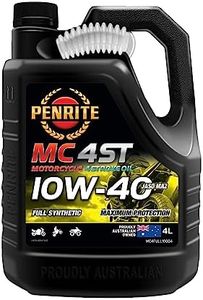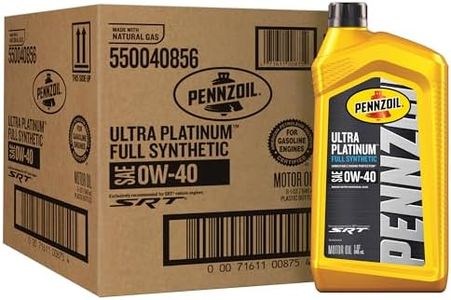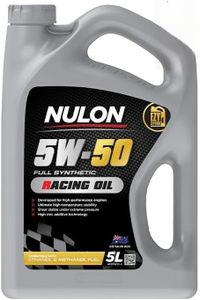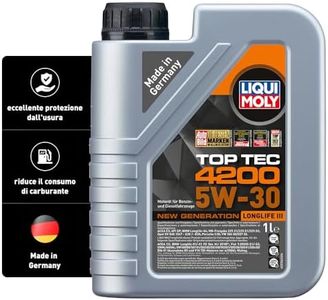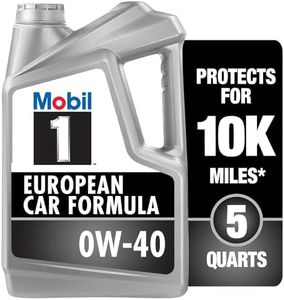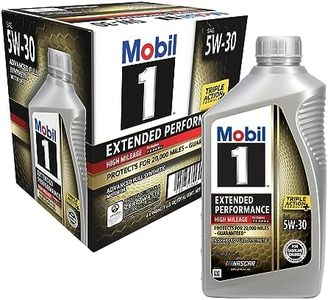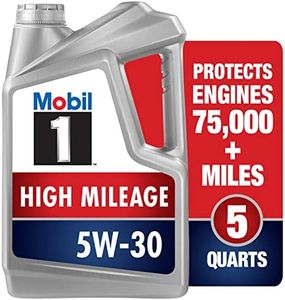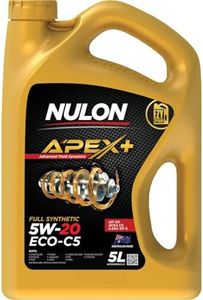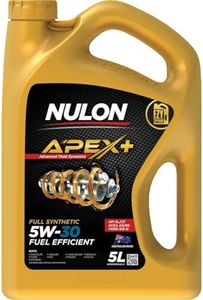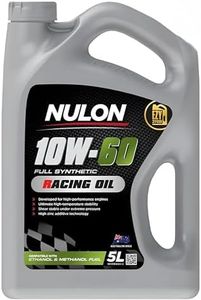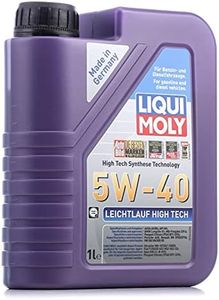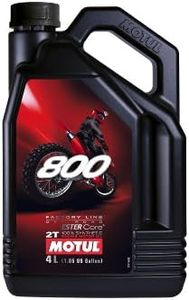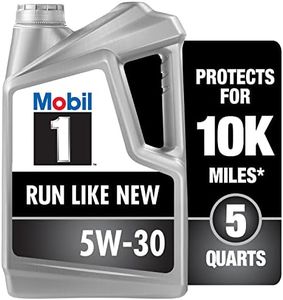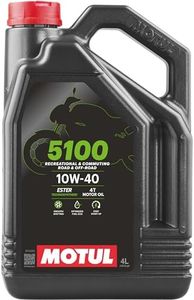We Use CookiesWe use cookies to enhance the security, performance,
functionality and for analytical and promotional activities. By continuing to browse this site you
are agreeing to our privacy policy
10 Best Motor Oils
From leading brands and best sellers available on the web.By clicking on a link to a third party's website, log data is shared with that third party.
Buying Guide for the Best Motor Oils
Choosing the right motor oil is essential for keeping your vehicle's engine running smoothly and efficiently. Motor oil lubricates engine parts, reduces friction, and helps prevent overheating. With so many types and labels on the shelves, it can feel overwhelming. Understanding the main features and what they mean for your car will help you select an oil that promotes engine health and fits your driving habits.Viscosity GradeViscosity grade tells you how thick or thin the oil is at different temperatures. It's usually shown as something like 5W-30 or 10W-40. The first number (like 5W) shows how the oil flows in cold conditions (the 'W' stands for winter), while the second number shows how it behaves when the engine is hot. Thinner oils flow better in cold weather and are often recommended for newer engines, while thicker oils may be better for older engines or hot climates. To choose the right viscosity, always check what's recommended in your vehicle's manual, and consider your local climate—colder weather often needs a lower number, and hotter or heavy-duty use may benefit from a higher number.
Oil TypeThere are three main motor oil types: conventional, synthetic blend, and full synthetic. Conventional oil is made from refined crude oil and is usually suitable for older or basic engines. Synthetic blend mixes standard oil with synthetic components to enhance protection and performance, making it a mid-range option. Full synthetic oil is engineered for high performance and durability and is best for modern engines or extreme driving conditions. Think about how often and how hard your vehicle is used—city drivers and those with high-performance cars may prefer synthetic oils, while older vehicles and occasional drivers might do fine with conventional products.
Additive PackageAdditives are special chemicals mixed into the oil to improve performance, such as cleaning engine parts, preventing wear, or controlling sludge. Different oils have different mixes, with some focusing on cleanliness, others on high-mileage protection, or enhanced wear resistance. If your car has higher miles, you may want oils with extra detergents and seal conditioners. For newer engines, look for oils with standard anti-wear and cleaning additives. Consider your vehicle's age and driving style when evaluating insurance of extra protections offered by different oil formulations.
API/ACEA RatingsAPI (American Petroleum Institute) and ACEA (European Automobile Manufacturers’ Association) ratings are classifications that tell you if an oil meets certain quality and performance standards. These ratings ensure the oil is safe and suitable for your engine. Ratings change over time as new standards develop, so always look for an oil that matches or exceeds the rating recommended in your owner's manual. This helps guarantee compatibility with your car's engine technology and ensures your warranty isn't affected.
High Mileage FormulationHigh-mileage oils are specially designed for vehicles that have more than 75,000 miles on the odometer. They often contain more seal conditioners to help reduce leaks and additives to minimize engine wear and sludge. If your car is older or has accumulated a lot of miles, consider oils labeled as high-mileage, as they can extend engine life and improve performance in aging engines. For newer cars, this feature isn't necessary, but it can be a big benefit for keeping an older vehicle running smoothly.

